Reply To:
Name - Reply Comment
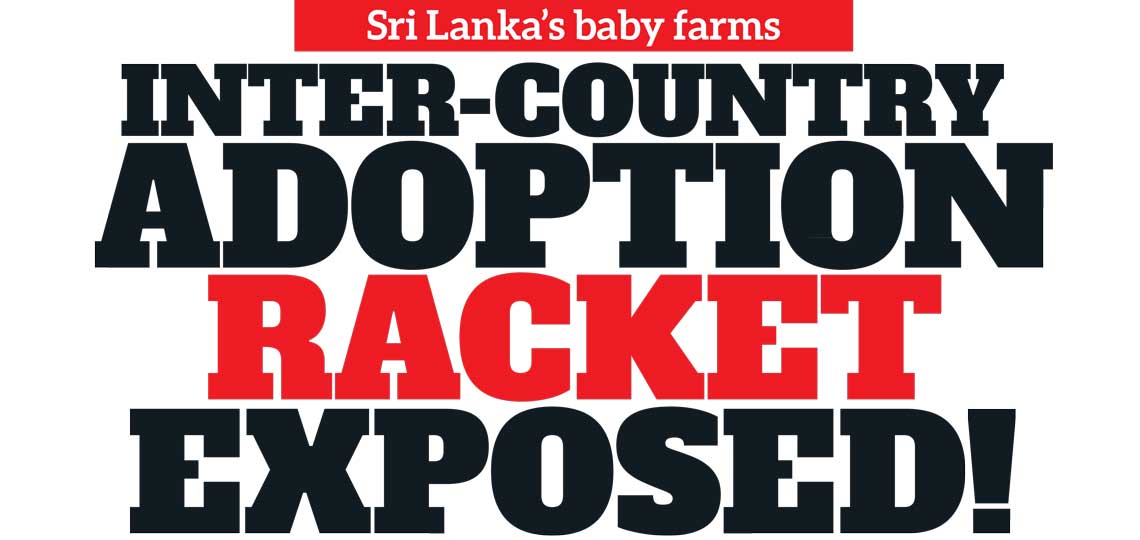
For tourists the paediatric ward resembled a supermarket
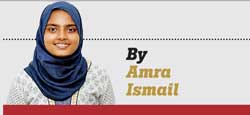 A recent documentary by Zembla, a Dutch current affairs programme, brought to light an adoption fraud during the latter part of the 19th century. Previously in 1983 a documentary was made based on the adoption scandal by Flash, a Dutch adoption organization that made massive profits by ‘selling’ children. News reports from 1987 highlight that a ‘baby farm’ had been raided and the police found 20 newborns and 22 women. The report further revealed that the babies had been purchased for about $30 and was sold abroad for about 30 times that value. However neither the Sri Lankan Government nor the receiving Governments have taken any worthwhile steps to address the issue, until recently when Health Minister, Dr. Rajitha Senaratne admitted to the revelations of the documentary makers that there had been baby farms and that he will investigate into the issue and take the initiative to set up a DNA bank.
A recent documentary by Zembla, a Dutch current affairs programme, brought to light an adoption fraud during the latter part of the 19th century. Previously in 1983 a documentary was made based on the adoption scandal by Flash, a Dutch adoption organization that made massive profits by ‘selling’ children. News reports from 1987 highlight that a ‘baby farm’ had been raided and the police found 20 newborns and 22 women. The report further revealed that the babies had been purchased for about $30 and was sold abroad for about 30 times that value. However neither the Sri Lankan Government nor the receiving Governments have taken any worthwhile steps to address the issue, until recently when Health Minister, Dr. Rajitha Senaratne admitted to the revelations of the documentary makers that there had been baby farms and that he will investigate into the issue and take the initiative to set up a DNA bank.
It is claimed that around 11 000 babies had been sold during this period. Children had been stolen from the arms of their biological mothers. One woman, who requested anonymity, said that her child was stolen at the Ratnapura Hospital. “This was during the JVP insurrection. The hospital didn’t give me my child. There was no one to inquire from because the doctors were on strike. The baby was stolen,” she said.
In certain instances fake mothers have handed over the child and now the adopted children have the information of this mother who is acting as their biological mother. In certain other instances the birth mothers had been deceived or coerced into giving the babies for adoption. There is also concern that women have been raped for the adoption market. Further, sources told Dailymirror that during the time referred to in the documentary the practice of tourists walking into the hospital and picking babies for adoption had existed.
Most mothers have given their children for adoption due to lack of support in raising the children on their won. Gallaguruge Sirimawathie said that she had to give her child for adoption because she was helpless. “My husband and his family were abusive. I had nowhere to go and I had to give the child up for adoption,” said a weeping Sirimawathie. “I don’t want anything from the child. I only want to see the child before I die,” she grieved.
Further, though agents from adoption agencies, help children locate their mothers and vice versa, mothers and adopted children told us that they weren’t trustworthy and were money-minded. Sirimawathie has traced her child through the birth certificate and knows that the child lives in Sweden. However, the agent who had located the whereabouts of the child had refused to provide her with further information claiming that the child didn’t want to meet the mother. Sirimawathie is suspicious of the agent’s trustworthiness.
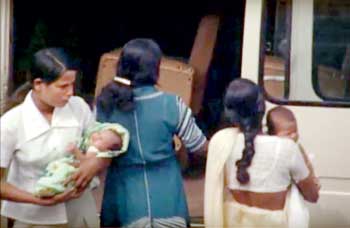
Another woman, W.P. Leelawathie from Homagamasaid that when she gave up her son for adoption the agent promised her that the son would return to her one day. But she has received no news of him to date.
Renuka Abeysinghe from Matugama, who had given her daughter for adoption voluntarily, said that she only wanted to see the child, but added that she has no information about her whereabouts. “I was given a letter thanking me and the letter also said that I will receive photographs. But I have received nothing. The child must be big now. I only want to see her,” she pleaded.
The documents that were prepared, such as the birth certificate, contain erroneous details which are misleading. A 40-year-old adoptee, who is currently living in Belgium and didn’t wish to be named, said that his family name, mother’s name and the birth date were false in the adoption papers and in the hospital register. However he has succeeded in locating his biological mother from Wellawatte.
When asked about the difficulties he had to endure as a result of the irregularities in his adoption he said that when he wanted to marry he didn’t have a birth certificate, but only adoption papers. He added that these papers were inadequate when dealing with the local Government. “Basically, I had to prove that I existed. After living here, attending school, playing sports, and becoming a world champion, I wasn’t allowed to marry because I didn’t have the necessary documents,” he said.
Shirani van den Berg, living in the Netherlands, said that her adoptive mother was unstable, alcoholic and often made her feel unwanted. “A mother has the right to know where the child is living and the child has the right to know its biological mother and its medical history,” she asserted. In the light of the recent revelations the Dailymirror spoke to some concerned parties.
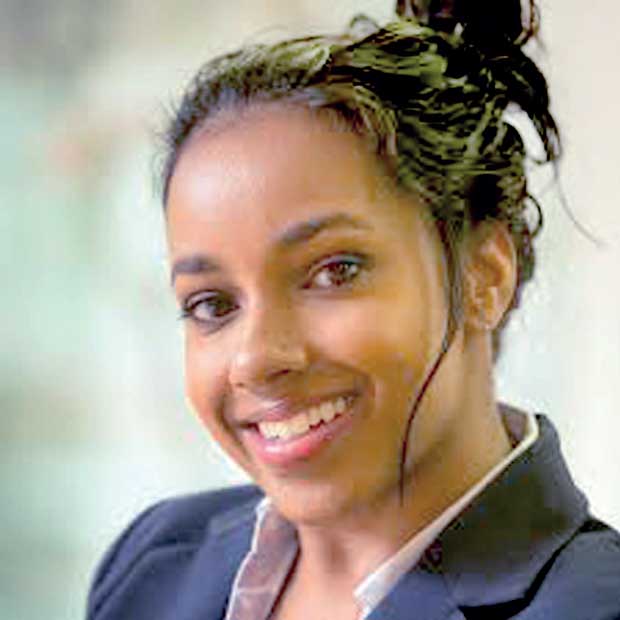 The filmmaker of the Dutch documentary made by Zembla, Sanne Van Rossen is Sri Lankan born and was adopted by Dutch parents.
The filmmaker of the Dutch documentary made by Zembla, Sanne Van Rossen is Sri Lankan born and was adopted by Dutch parents.
-Sanne Van Rossen
Filmmaker of the Dutch Documentary
“There were a lot of false things in the papers regarding the adopted children. For instance, when they did the DNA Test the mother they traced through their papers weren’t really the biological mothers. Sometimes the birth place would be wrong. That is why I did the research,” the 32-year-old told Dailymirror in a skype interview
Women had been picked up from the street and had been raped to produce children for the adoption market. Some women had been paid while some weren’t. “The story that revolved around these adoptions suggests that adoption was illegal. You can consider it to be legal because of the papers which had been documented by lawyers or very powerful people. These were court adoptions. But these adoptions are illegal because women were raped for the adoption market. They had to give their babies away either because they were forced or they were made to believe the children would return later with money,” she said.
“I have documented an incident involving the Flash adoption organization where the mother refuses to give the baby away. Instead they gave her money and asked her to shut up,” she said referring to the documentary she had made. In another incident involving a twin brother and sister, one baby had died, but the corpse was replaced by another, so that they appeared to be twins,” she said.
I have documented an incident involving the Flash adoption organization where the mother refuses to give the baby away. Instead they gave her money and asked her to shut up
“Flash, was an adoption agency back in the 80s and the 90s. They were selling babies. Flash would arrange a baby in 3 or 4 months. There were around 4 or 5 such adoption organizations with the history. They did the same thing,” she said. According to her the cost of an adoption was as much as €15 000 at that time. Flash no longer exists.
“Everyone is saying that he or she didn’t know or that it is not his or her fault,” she said.
Now that these adopted children are in search of their mothers the people who were previously involved in the adoption market have offered root searching which again seems to have become a lucrative business. “We do root searching through people from Sri Lanka who were involved with Flash back in the 80s. We need to pay a lot of money and it’s not trustworthy. It’s better to go by yourself and search for yourself. Sometimes these contact persons say I have found your mother, but they don’t provide the address,” she said.
She started her own search for her biological mother in 2010. Her birth certificate states that she had been born at the Rathnapura Hospital. Accordingly she traced her birth mother and a DNA Test proved the biological connection. However her mother had given birth to her at the Karawanella Hospital.
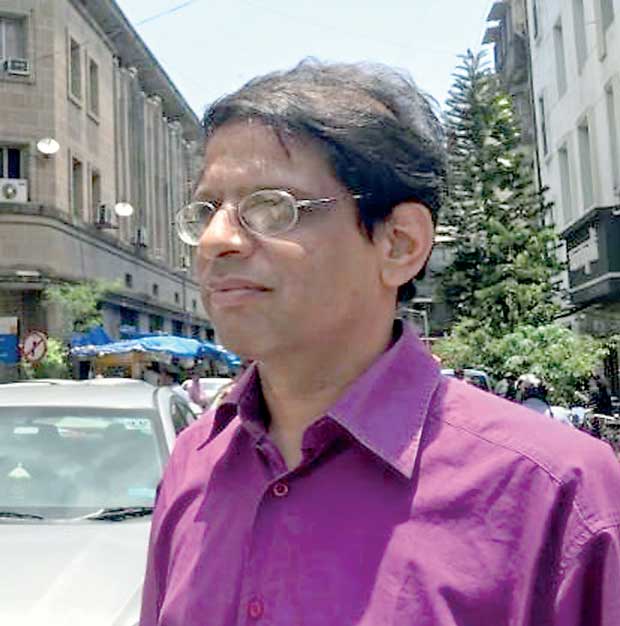 The Executive Director of ‘Against Child Trafficking’(ACT), Arun Dhole, said that though this scandal was reported in the media in the 1980s neither the Government in Sri Lanka nor the Governments in the receiving countries had addressed it. ACT is a child rights NGO established in 2008 at the suggestion of the European Commission.
The Executive Director of ‘Against Child Trafficking’(ACT), Arun Dhole, said that though this scandal was reported in the media in the 1980s neither the Government in Sri Lanka nor the Governments in the receiving countries had addressed it. ACT is a child rights NGO established in 2008 at the suggestion of the European Commission.
According to Dhole, children were ‘manufactured’ not just in Sri Lanka, but also in South and Middle America, India, Nepal, Thailand, Romania etc.
-Arun Dohle
Executive Director of Against Child Trafficking (ACT)
“There’s a demand for children, so supply is created. In a market- even when regulated- its forces are stronger than the interest of the children and their families,” he explained.
“The problem regarding these adoptions is that some children appear to be bought, the paperwork is fabricated and there is no information about consent being given etc.Essentially children were turned into commodities,” he added. He suggested that the Government of Sri Lanka should open a full-fledged investigation into the adoption practices from the past. “The biological families as well as the adult adoptees need assistance in tracing each other and there should be compensation. For today’s children, Sri Lanka should just stop Inter-country Adoption and strengthen the implementation of the United Nations Convention on the Rights of the Child,” he said.
Article 21(b) of the United Nations Convention on the Rights of the Child states that ‘inter-country adoption may be considered as an alternative means of child’s care, if the child can’t be placed in a foster or an adoptive family or cannot in any suitable manner be cared for in the child’s country of origin. “Nobody can tell me, that Sri Lanka or India can’t take care of its children,” he said.
The problem regarding these adoptions is that some children appear to be bought, the paperwork is fabricated and there is no information about consent being given etc
Dhole was born in India and was adopted by German parents in 1973.
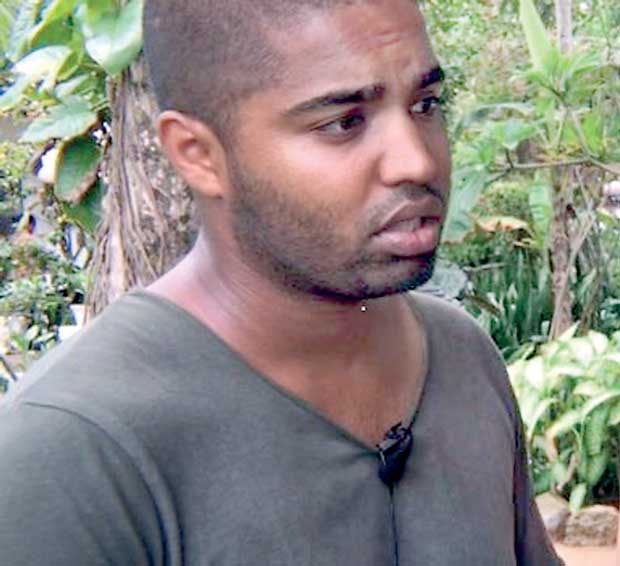 When asked about the progress to set up a DNA database, so that the DNA of the biological parents, relatives and the adoptees could be stored to trace one another, one of the pioneers of the ‘Sri Lanka Family Project’, Rowan Van Veelen, said that though most European adoptees were rich enough to participate in the process, the biological parents didn’t have the finances to do the DNA test on their own.
When asked about the progress to set up a DNA database, so that the DNA of the biological parents, relatives and the adoptees could be stored to trace one another, one of the pioneers of the ‘Sri Lanka Family Project’, Rowan Van Veelen, said that though most European adoptees were rich enough to participate in the process, the biological parents didn’t have the finances to do the DNA test on their own.
-Rowan Van Veelen
An adoptee and pioneer of the ‘Sri Lanka Family Project’
“They don’t have the financial means to participate in this DNA bank. This makes locating family members nearly impossible,” he said.
“If the biological family from Sri Lanka can’t join this DNA bank, we are left with the only option of locating brothers and sisters in the west,” he added.
Therefore the main goal of the ‘Sri Lanka Family Project’ is to get the DNA of the biological parents, so that they don’t incur expenses.
“Through our organization we focus on bringing families together. It’s important to remember that it is not only the adopted children who have the urge to locate their biological families, the same goes for the families back in Sri Lanka who gave up their children for adoption either willingly or after being forced. When the database is created it will no longer be a hassle to know whether there was fraud in connection with our papers, because the DNA Test will provide proof of family ties,” he explained.
Through our organization we focus on bringing families together
“The adoption system is based on making a financial profit per baby. For me, as an adoptee, the worst thing about being adopted through this system is that when I was most vulnerable and dependent no one involved seemed to care about me and my well-being. The adoption agencies from western countries treated me as a profitable thing, instead as a person. So many terrible human rights violations were made and are still being made,” he claimed.
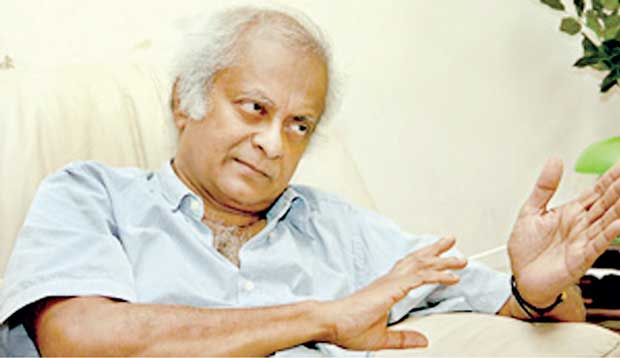
Consultant Pediatrician, former Chairman of the National Child Protection Authority (NCPA) and the Presidential Task Force on Child Protection, Prof. Harendra De Silva said that when he was an intern medical officer back in 1975 the paediatric ward was more ‘like a supermarket for tourists’.
-Prof. Harendra De Silva
Former Chairman of the NCPA
“They came in couples, walked across and somebody would be showing the kids. Then the couple would say I want this one. This was the practice at that time,” he reminisced.
He recalled an incident where a baby, who was just a few days old, who had been abandoned in a train, was brought to the Lady Ridgeway Hospital by a policeman. Later he (The policeman) was coerced by the Director of the hospital to handover the baby to a European couple, which he had refused to do. “A European couple visited the ward. We weren’t even bothered about going behind them because it was routine for people to come and take children. This couple wanted the baby. I refused to handover the baby. The Director of the Hospital insisted that the child be handed over to the couple though I didn’t have any document,” he said. The Director had threatened to penalize him for disobeying orders of a superior.
This couple wanted the baby. I refused to handover the baby. The Director of the Hospital insisted that the child be handed over to the couple though I didn’t have any document
An Australian woman had been managing a house in Pamankada which was full of children at the time. Prof. De Silva had volunteered to examine the children. Today, looking back, he realizes that this place would have been a baby farm. “People would come, buy and go. She used to take money from these people. There were lots of young Australian boy volunteers who were in their twenties or late teens who had come to work in this place. There were also orphaned girls who fell into the age rage between16-18. I realized that there was something odd going on. Then I decided not to visit the place. This would have been a baby farm,” he said.
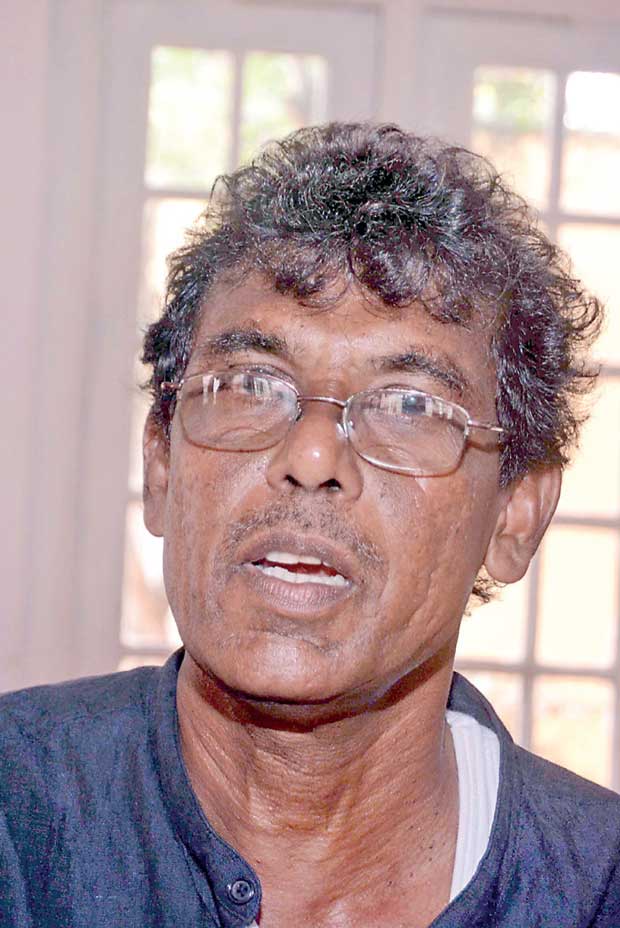 Andrew Silva is a tour guide who drives tourists around in his van. In year 2000 he was asked by a Dutch family to look for the biological parents of their adopted child. The search had been successful and gradually Silva was asked by several other adoptees to look for their parents. He is 60 years old and hasn’t been involved in the adoption fraud. He helps children and mothers locate each other as a social service. So far he has been able to reunite about 40 children with their mothers. Around 125 mothers, in search of their children, have approached Silva. When the met him in Negombo he explained the adoption fraud in detail referring to information he possessed of biological mothers and the adopted children. Holding out a birth certificate Silva said that though the certificate claimed that the baby had been born in Kalutara, the mother had said that the baby was born in the Karawanella Hospital in the Sabaragamuwa Province.
Andrew Silva is a tour guide who drives tourists around in his van. In year 2000 he was asked by a Dutch family to look for the biological parents of their adopted child. The search had been successful and gradually Silva was asked by several other adoptees to look for their parents. He is 60 years old and hasn’t been involved in the adoption fraud. He helps children and mothers locate each other as a social service. So far he has been able to reunite about 40 children with their mothers. Around 125 mothers, in search of their children, have approached Silva. When the met him in Negombo he explained the adoption fraud in detail referring to information he possessed of biological mothers and the adopted children. Holding out a birth certificate Silva said that though the certificate claimed that the baby had been born in Kalutara, the mother had said that the baby was born in the Karawanella Hospital in the Sabaragamuwa Province.
-Andrew Silva
Volunteer Root Searcher
“There have been brokers at the Karawanella Hospital. They have coerced the mothers to handover the children saying that the children will be brought up in a better place with luxuries.” He further said that a broker at the Karawanella Hospital had offered mothers Rs.1000 to handover their children.
In another case the birth certificate had been prepared claiming that the baby was born at the Kalubowila Hospital. But this information isn’t mentioned in the registers at the Kalubowila Hospital.
“In some birth certificates the name would be correct, but not the hospital. If there are three names one would be correct. Or the father’s name would be incorrect,” he explained. “Some mother’s don’t know where the child had been taken to nor the child’s name,”he said.
In some birth certificates the name would be correct, but not the hospital. If there are three names one would be correct
In another instance a woman was traced to be the mother of twins who had been given away for adoption. However the mother claimed she had given birth to only one child. Accordingly a DNA Test was done and the results proved that the two children weren’t twins. Further, it was found that the woman wasn’t the mother of either of the children.
Another girl, who was searching for her biological parents, contacted the adoption agency which had directed her to a person who was presented to her as the biological mother. However after few years this woman couldn’t be located. Then Silva had been asked to make inquiries. He got an article published with the name of the biological mother. Then the real biological mother had contacted him. Later a DNA Test was done and the results had been conclusive.
Similarly in another case, a woman claimed to be the mother of the child, but when requested to undergo the DNA Test had admitted that she wasn’t the mother. Another child had been deceived for 6 years and made to believe that the fake mother was the actual mother. In another case the intermediary connected with an adoption organization has promised to handover money to the biological mother. The adopted child had asked Silva to make the inquiries independently and after a series of events the woman who had been presented had admitted to Silva that she wasn’t the mother and that she had been asked to act as the mother by the intermediary.
Silva stressed that the Ratnapura Hospital was a hub where adoption fraud took place.
In 2007 a child was kidnapped, by the midwife, and taken in a paper bag, from the Godakawala Hospital in Ratnapura. “She was nabbed, but the mother saved herself from prosecution saying that she had given her consent,”he said.
Pic by Pradeep Pathirana
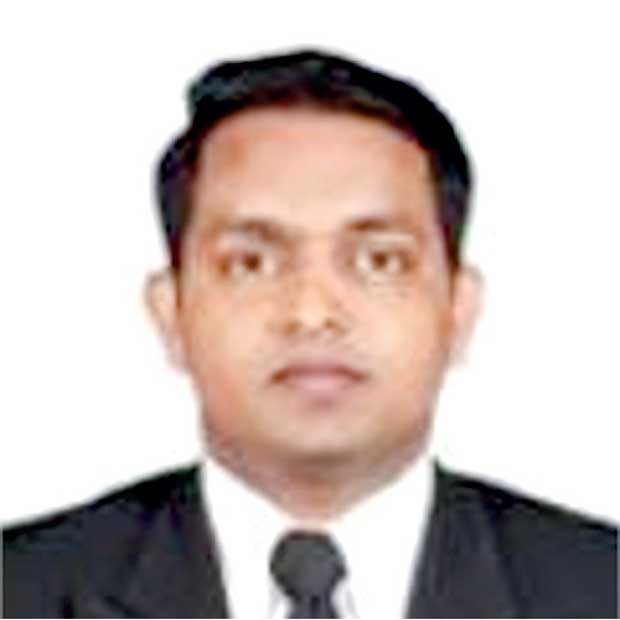 M.A.M Hakeem, Senior Lecturer at the Department of Public and International Law, Faculty of Law, Colombo said that once the child is adopted there is no relationship between the biological parent and the child.
M.A.M Hakeem, Senior Lecturer at the Department of Public and International Law, Faculty of Law, Colombo said that once the child is adopted there is no relationship between the biological parent and the child.
-M.A.M Hakeem
Legal expert
“So the birth certificate is amended. If a proper procedure is adopted then the consent of parents is present. They know to whom they have given their children. So they know where the children are,”said Hakeem.
Referring to baby farms he said if women had been abducted, raped or their children were stolen, then it is a criminal act and criminal prosecution should take place. “In such situations the biological mother has a right to know because she had been kept in the dark and doesn’t know what happened to her child,” he said.
The Ministry of Justice can advise the Attorney General to take necessary steps to prosecute and expose who were the culprits behind these baby farms
He added that the Ministry of Women and Child Affairs, the Ministry of Health, the Ministry of Justice and the Ministry of Foreign Affairs can get together to investigate into such issues.
“The Ministry of Justice can advise the Attorney General to take necessary steps to prosecute and expose who were the culprits behind these baby farms,” he said.
Under Section 360c of the Penal Code Amendment of 1995, buying, selling, bartering people for money or any other consideration is considered trafficking and is punishable.
Probation and Child Care Services Commissioner Chandima Sigera said that if an adopted child was searching for the biological parents the department would assist. However, if the biological parents sought assistance the Department wouldn’t assist because the child had been given away voluntarily.
-Chandima Sigera
Commissioner of the Department of Probation and Child Care Services
She pointed out that it was only after 1992, when the Adoption Ordinance was amended, that a proper procedure was introduced. However she added that during adoptions, prior to 1993, there could be instances where the birth certificate contained erroneous details. “The department can’t take the responsibility for the authenticity of the information in birth certificates. If the children have birth certificates with wrong details we can’t trace the parents,” she said.
“There can’t be such errors today because the adoption takes place following proper legal proceedings. We obtain the information through the provincial probation commissioners. We take children from children’s homes for adoption,”she said.
Under the 13th Amendment, the children’s homes come under the purview of the Provincial Probations Commissions. “When a request to give a child for adoption comes from a home, it is placed before several placement committees, so that local couples can adopt the child. If there are no local parents willing to adopt the child, the request is referred to foreign adoptions. If there are local parents then there won’t be a foreign adoption”.